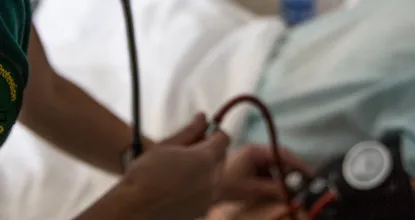The School of Nursing offers the programs listed below. Click on the links to learn more about them.
Bachelor Degree Programs
Programs leading students to earn a bachelor of science in nursing degree combine the study of humanities and physical and behavioral sciences with professional nursing courses and clinical experience. Students are expected to demonstrate competency in critical thinking, communication and therapeutic nursing interventions when providing care for clients, families and communities. Graduates of the program are qualified to take the National Council for Licensure Exam and to apply for entrance to graduate programs in nursing.
Whether students are fresh out of high school or they have worked in the field for years, one of the nursing baccalaureate programs will meet their needs.
Master of Science in Nursing
The School of Nursing provides a program of graduate study that leads to a Master of Science in Nursing (MSN) with specialization as a Family Nurse Practitioner (FNP). The program provides Registered Nurses with advanced knowledge and clinical skills to serve as primary health care providers. Graduates assume responsibility for assessment and management of a broad range of health needs of individuals and families across the life span.
Family Nurse Practitioner's typically work collaboratively with family care physicians and other professionals within the health care system. They practice in a variety of rural and urban ambulatory settings such as primary care offices, hospital outpatient clinics, health maintenance organizations, community health clinics, tribal health centers and specialty clinics.
Doctor of Nursing Practice
The Doctor of Nursing Practice (DNP) degree prepares graduates to provide the most advanced level of nursing care for individuals, families, groups, and communities. This includes direct care of individual patients, management of care for individuals and populations, administration of nursing systems, and development and implementation of health policy. The program includes post-baccalaureate and a post-master's tracks. The population focus for the post-baccalaureate track is families and individuals across the lifespan (Family Nurse Practitioner). Courses are delivered on a part-time basis, using a low-residency model, which includes online coursework with occasional on-campus visits. Clinical practicum hours may be completed in the student’s community with an approved preceptor.
Transferring to NMU
Prospective transfer students from other colleges or universities should take courses equivalent to those listed as requirements for admission to their chosen nursing sequence. To check course equivalencies and other transfer student requirements, see www.nmu.edu/transfer and consult with a nursing program adviser.
Please note that completion of prerequisites does not guarantee admission to the nursing program.
